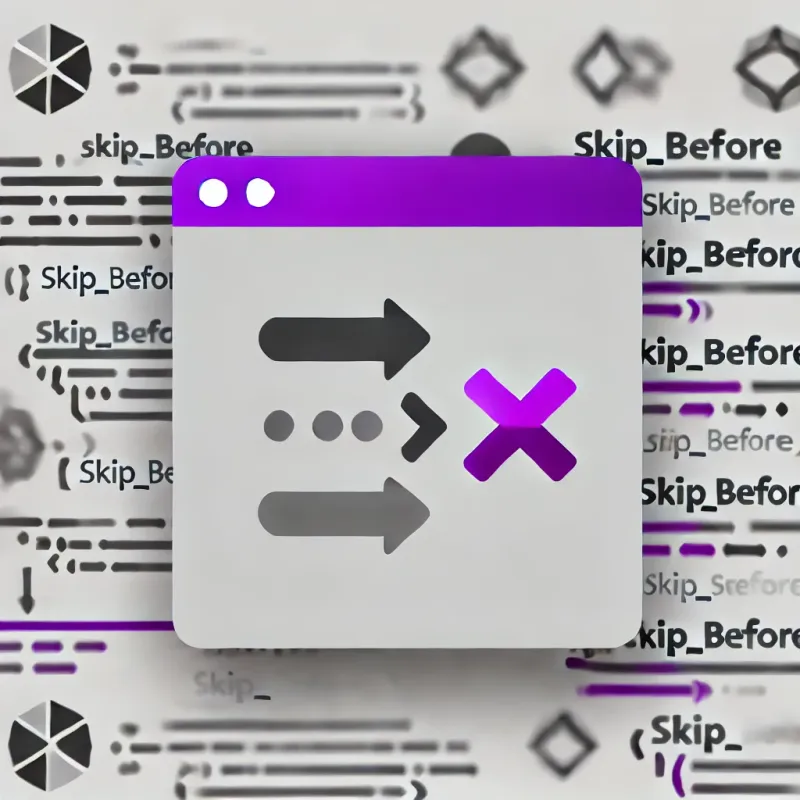The skip_before method in RSpec is a useful tool for selectively skipping certain before blocks in your test suite. These before blocks are run before each example in a test suite, and they can be used to set up common test data or perform other necessary tasks.
However, there may be times when you want to skip certain before blocks for certain examples. This is where skip_before comes in handy.
To use skip_before, simply pass it the symbol or string representing the before block that you want to skip. For example:
describe "My Example" do
before(:all) do
# this block will run before all examples
end
before(:each) do
# this block will run before each example
end
it "skips the before(:each) block" do
skip_before(:each)
# this example will not run the before(:each) block
end
it "runs the before(:each) block" do
# this example will run the before(:each) block
end
endYou can also pass skip_before a block, in which case the before block will be skipped only for the examples within the block. For example:
describe "My Example" do
before(:each) do
# this block will run before each example
end
it "skips the before(:each) block" do
skip_before(:each) do
# this example will not run the before(:each) block
end
end
it "runs the before(:each) block" do
# this example will run the before(:each) block
end
endOne thing to keep in mind is that skip_before will only skip before blocks that are defined in the same example group as the example being run. It will not skip before blocks defined in a parent example group.
In summary, skip_before is a useful tool for selectively skipping certain before blocks in your RSpec test suite. It allows you to fine-tune the setup for each example and make your tests more efficient and focused.
